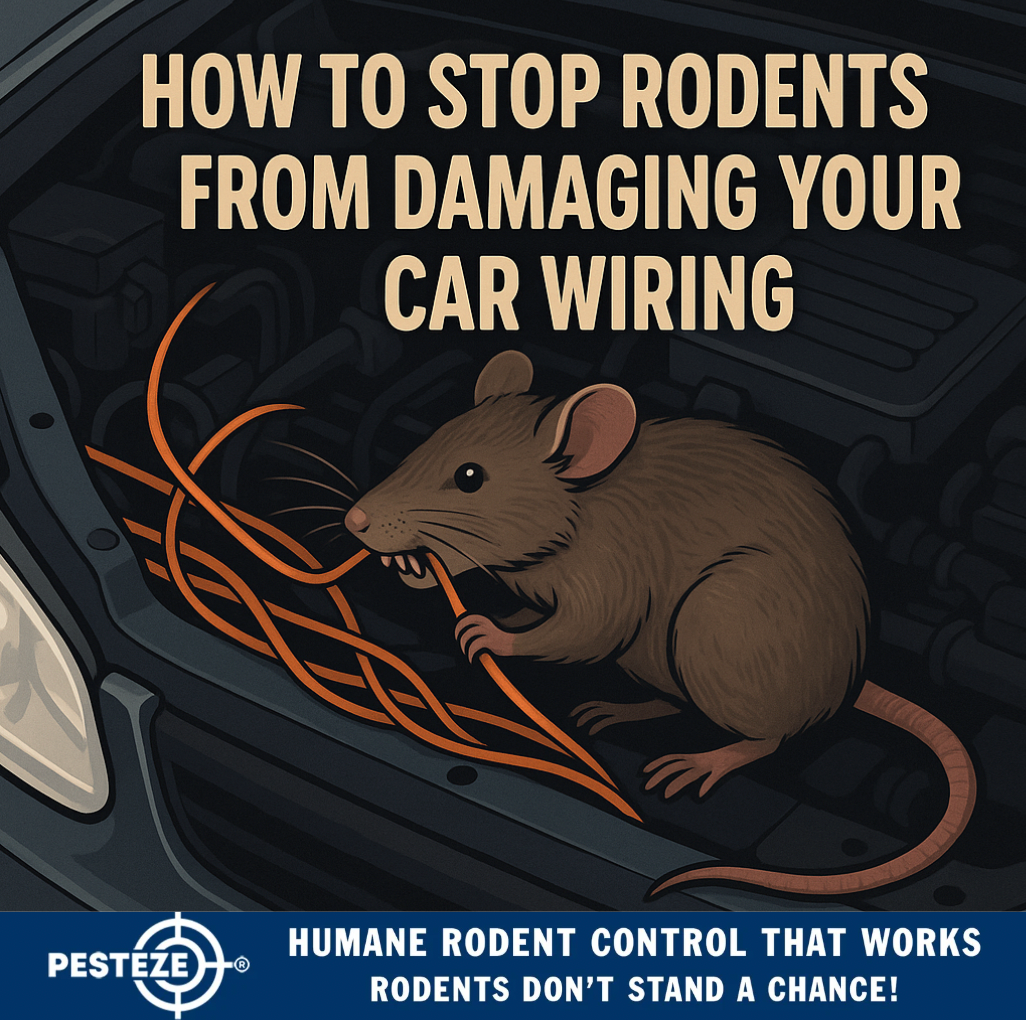HOW TO STOP RODENTS FROM DAMAGING YOUR CAR WIRING

HOW TO STOP RODENTS FROM DAMAGING YOUR CAR WIRING
SUMMARY
Rodents chewing car wiring is a growing problem for vehicle owners. This guide explains why it happens and provides effective solutions to protect your car from costly rodent damage.
FEATURES
-
Why Rodents Chew Wires: Understand the cause of this behavior.
-
Use Repellents: Apply sprays, tapes, or electronic deterrents.
-
Seal Entry Points: Block gaps where rodents can crawl into engine bays.
-
Park Strategically: Avoid parking near tall grass or clutter.
-
Regular Inspections: Check wiring, filters, and engine areas frequently.
-
Professional Help: Get specialized treatments if the problem persists.
DESCRIPTION
Rodents chewing on car wiring is not only frustrating but also expensive to repair. The issue has become more common as modern car wiring often uses soy-based insulation, which rodents mistake for food or nesting material. Understanding why rodents do this and how to stop them is essential for protecting your vehicle.
One of the most effective strategies is using repellents. Commercial rodent-repellent sprays and tapes are designed to coat wires with scents and tastes that rodents dislike. Some tapes are treated with capsaicin, the active ingredient in chili peppers, which creates a strong deterrent. Ultrasonic deterrent devices can also be installed in garages or near parking areas to emit sounds that keep rodents away.
Blocking entry points is another important step. Rodents often crawl into cars through openings near the engine bay or undercarriage. Installing mesh or screens over vents and sealing gaps can prevent them from getting inside in the first place.
Where you park makes a big difference. Avoid parking in areas with tall grass, woodpiles, or clutter where rodents may be nesting. If possible, park in a garage, and keep the area clean and free of food sources that might attract pests.
Regular inspections are also key to prevention. Check under the hood frequently for droppings, nests, or gnaw marks on wires. Replacing cabin air filters and cleaning engine compartments can help remove odors or debris that attract rodents.
For ongoing or severe issues, professional help may be necessary. Some auto shops offer rodent-deterrent treatments, such as applying protective coatings to wires or installing physical barriers around vulnerable parts.
By combining repellents, entry sealing, smart parking, inspections, and professional services, you can significantly reduce the risk of rodents damaging your car wiring and avoid expensive repairs.
- Saharsh Bansal


Comments 0